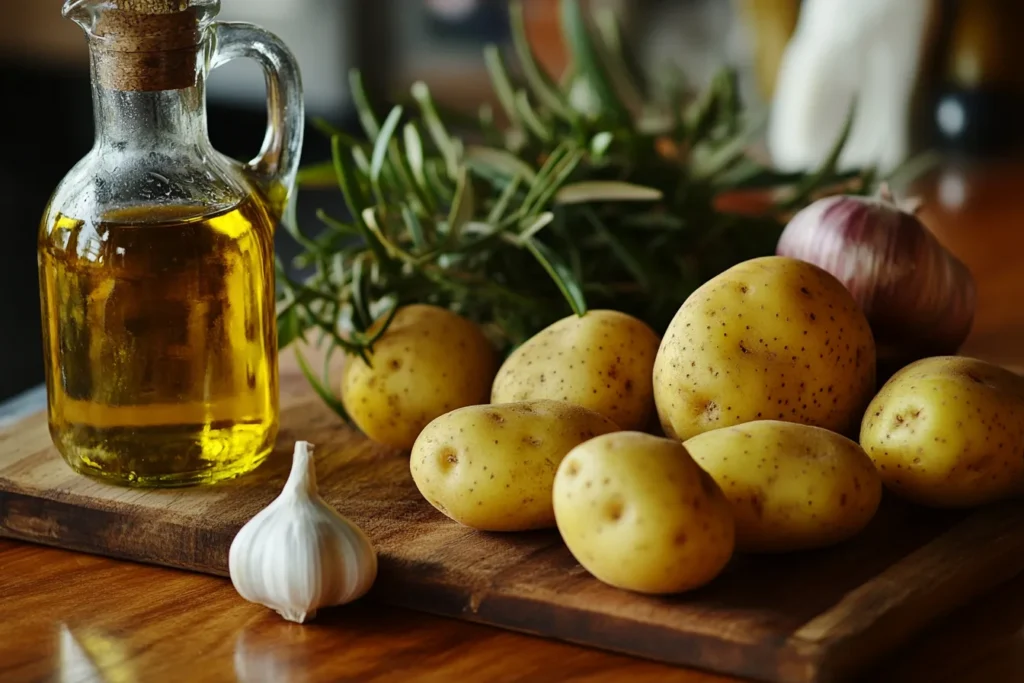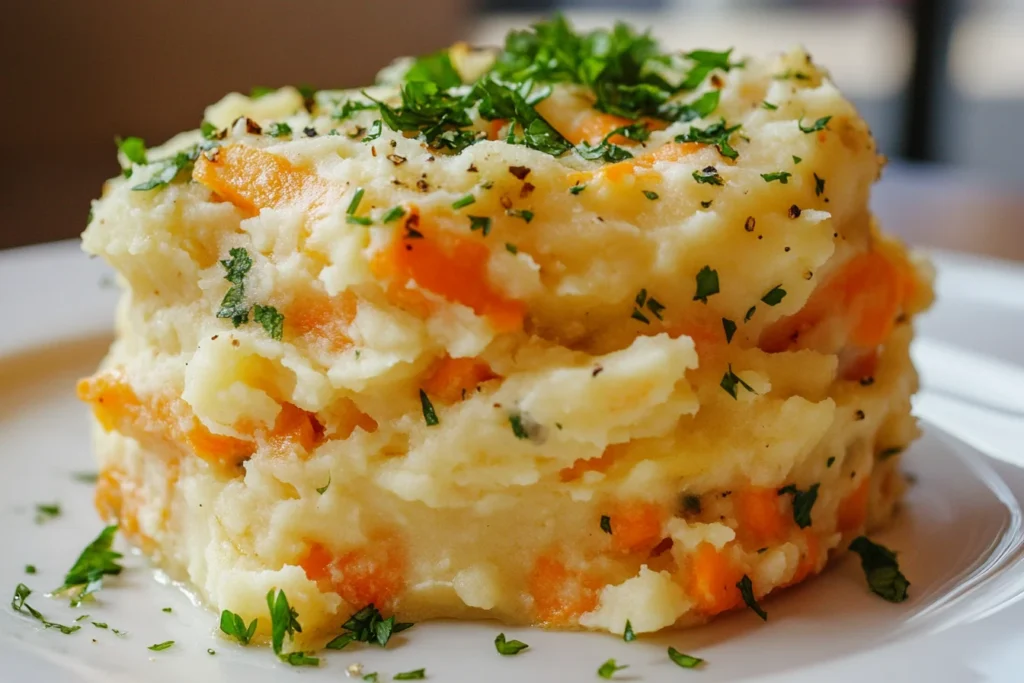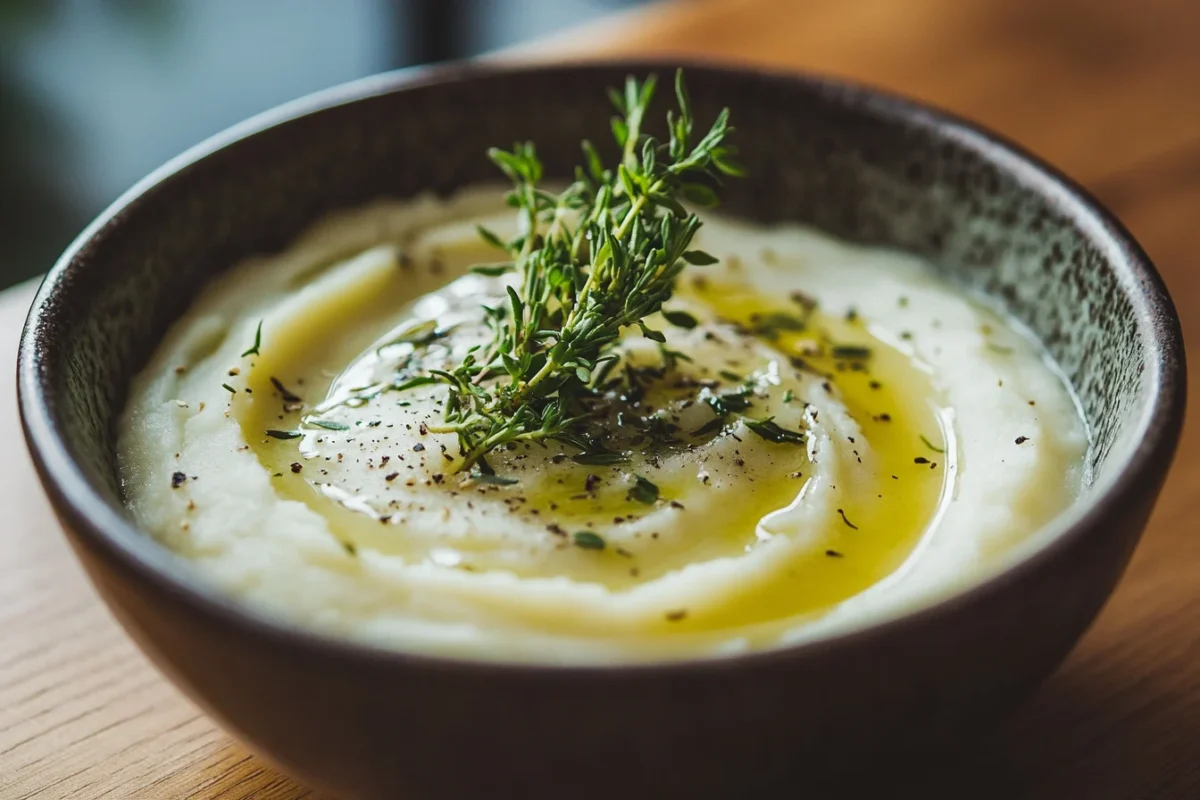Introduction
Mashed potatoes: a quintessential comfort food enjoyed across cultures and cuisines. They’re simple to prepare, incredibly versatile, and surprisingly nutritious! But what’s hiding behind that creamy, fluffy texture? From macronutrients to minerals, mashed potatoes pack a nutritional punch. This article explores their composition, health benefits, and ways to boost their value further. Let’s uncover the secrets of this beloved dish.
Understanding the Nutritional Value of Mashed Potatoes
Overview of Mashed Potatoes in Diet
Mashed potatoes aren’t just a staple side dish—they’re a global phenomenon. With roots in many cultures, their versatility is unmatched. They can complement everything from roasted chicken to hearty stews, and their appeal lies in their simplicity.
Popularity and Cultural Significance
From Thanksgiving feasts in the United States to humble meals in European homes, mashed potatoes hold a special place in culinary traditions. Their universal appeal stems from their adaptability to flavors and textures. Add herbs for a touch of freshness, or keep it classic with butter and cream; either way, they’re a crowd-pleaser.
Common Preparation Methods
Whether whipped to a silky smooth texture or left with a rustic, chunky feel, mashed potatoes are a blank canvas for creativity. Preparation often involves boiling, mashing, and mixing with ingredients like butter, milk, or cream. However, these additions can influence their overall nutritional profile.
Basic Nutritional Composition
Macronutrient Profile of Mashed Potatoes
Mashed potatoes may look simple, but their macronutrient profile tells a different story. They provide energy, a modest amount of protein, and a small fat content depending on preparation methods. Let’s break it down.
Carbohydrates
Carbohydrates are the backbone of mashed potatoes, providing the fuel your body needs. A single cup of mashed potatoes typically contains around 30 grams of carbs. These include complex carbohydrates, which release energy slowly, making them a great option for sustained energy.

Types of Carbohydrates Present
Mashed potatoes primarily consist of starch, a type of carbohydrate that serves as a quick energy source. While they’re starchy, they also offer a small amount of dietary fiber, which aids digestion.
Glycemic Index and Impact on Blood Sugar
Mashed potatoes have a moderately high glycemic index (GI), meaning they can cause a quicker spike in blood sugar compared to lower-GI foods. However, pairing them with fiber-rich vegetables or healthy fats can lower the overall glycemic load.
Proteins
Though not a protein powerhouse, mashed potatoes provide around 4 grams of protein per serving. This makes them a good complementary food when paired with higher-protein dishes like grilled chicken or beans. While their protein content is modest, they do contain essential amino acids.
Fats
The fat content in mashed potatoes largely depends on the recipe. Without added butter or cream, mashed potatoes are virtually fat-free. Traditional recipes, however, can add significant amounts of saturated fat, especially when heavy cream or butter is used. Opting for plant-based milks or olive oil can help keep them heart-healthy.
Micronutrient Content
Mashed potatoes are more than just carbs and calories; they’re also packed with essential vitamins and minerals that support overall health.
Vitamins
Potatoes are an excellent source of Vitamin C, which supports the immune system and skin health. A serving of mashed potatoes can provide up to 20% of the recommended daily intake. Additionally, they contain B vitamins like B6 and folate, vital for energy metabolism and brain health.
Minerals
Minerals in mashed potatoes play a crucial role in bodily functions. They’re a rich source of potassium, which helps regulate blood pressure and muscle function. They also contain magnesium, necessary for bone health, and trace amounts of iron, which supports oxygen transport in the body.
Stay tuned for Part 3, where we’ll explore how mashed potatoes contribute to overall health and wellness.
Health Benefits of Mashed Potatoes
Dietary Fiber and Digestive Health
Mashed potatoes may not be the first food you think of when it comes to fiber, but they do contain a small amount, particularly if the skin of the potato is included in the preparation. Fiber is a crucial component for maintaining a healthy digestive system, and even in their creamy form, mashed potatoes can contribute to this.
Role of Fiber in Mashed Potatoes
The fiber found in potatoes supports regular bowel movements and prevents constipation. While peeling potatoes for mashed recipes reduces fiber content, using varieties like red potatoes or Yukon gold and leaving the skins on can enhance their dietary fiber levels significantly.
Benefits for Digestive System
In addition to promoting regularity, the fiber in mashed potatoes serves as food for good gut bacteria. This prebiotic effect supports a healthier gut microbiome, which plays a role in overall immunity and digestion.
Antioxidant Properties
Potatoes, surprisingly, are a source of antioxidants, compounds that help protect cells from damage caused by free radicals. Mashed potatoes made from certain varieties can retain some of these powerful nutrients.
Presence of Antioxidants in Potatoes
Potatoes contain antioxidants like flavonoids, carotenoids, and phenolic acids. These are particularly abundant in colored potato varieties, such as purple or red potatoes. Even white potatoes have trace amounts that contribute to overall health.
Health Implications
Consuming foods rich in antioxidants, like mashed potatoes, can help reduce inflammation and lower the risk of chronic diseases. While they’re not as antioxidant-packed as kale or blueberries, incorporating potatoes into a balanced diet adds to your intake of these beneficial compounds.
Factors Influencing the Nutritional Value of Mashed Potatoes
Impact of Preparation Methods

How you prepare mashed potatoes significantly affects their nutritional value. Ingredients like butter, cream, and milk can either enhance or diminish their health benefits, depending on your goals. Let’s look at some common methods and their effects.
Boiling vs. Baking
The method of cooking potatoes matters. Boiling potatoes, the most common method for mashed dishes, can cause some water-soluble nutrients like Vitamin C and B vitamins to leach into the cooking water. Baking, on the other hand, retains more nutrients but may take longer.
For the healthiest results, consider steaming potatoes to retain the most nutrients before mashing. And remember, cooking with the skin on can preserve additional fiber and minerals.
Addition of Ingredients (Butter, Cream, Milk)
Traditional mashed potato recipes often include butter and cream, which add richness but also saturated fat and calories. While they make the dish indulgent, these ingredients may not align with all dietary goals.
Substituting full-fat dairy with alternatives like plant-based milk or using olive oil instead of butter can improve heart health while keeping the dish flavorful.
Variations Among Potato Types
Not all potatoes are created equal! The type of potato you use plays a role in determining the nutritional composition of your mashed dish.
Russet vs. Yukon Gold vs. Red Potatoes
Russet potatoes, known for their high starch content, create the fluffiest mashed potatoes but have a higher glycemic index compared to other varieties. Yukon gold potatoes are creamier and richer in nutrients like Vitamin C and potassium. Red potatoes, with their lower starch content and waxy texture, retain more fiber when the skin is left on.
If you’re looking for a balanced choice, Yukon gold potatoes offer a creamy texture without compromising nutritional density.
Considerations for Specific Diets
Mashed Potatoes in Weight Management
While mashed potatoes are often seen as a comfort food, their place in a weight management plan depends on portion size and preparation methods. Let’s dive into how they can be part of a balanced diet without derailing your goals.
Caloric Content and Satiety
Potatoes are naturally low in calories—only about 110 per medium potato when plain. However, when mashed with butter, cream, and other rich ingredients, the calorie count can rise significantly. Despite this, the natural starches in potatoes promote satiety, which can help control hunger and prevent overeating.
Choosing simple, low-fat recipes can allow mashed potatoes to remain a satisfying, diet-friendly option. For instance, try using unsweetened almond milk or low-fat yogurt for creaminess without the calorie overload.
Suitability for Diabetic Diets
Potatoes are often a topic of debate for individuals managing diabetes due to their carbohydrate content and glycemic index. However, with mindful preparation and pairing, mashed potatoes can still fit into a diabetic-friendly meal plan.
Glycemic Load Considerations
The glycemic load (GL) of a dish considers not just the GI but also the portion size. A modest serving of mashed potatoes, especially when combined with proteins and non-starchy vegetables, can help balance blood sugar spikes. Opt for varieties like red potatoes or those with a waxy texture, as they tend to have a slightly lower glycemic impact.
Tips for Diabetic-Friendly Recipes
- Add fiber-rich vegetables like spinach or cauliflower puree.
- Incorporate healthy fats like olive oil to slow carbohydrate absorption.
- Limit added butter or cream and skip sugary toppings like marshmallows.
Enhancing the Nutritional Value of Mashed Potatoes
Healthier Preparation Techniques
Creating a healthier version of mashed potatoes doesn’t mean sacrificing flavor. By making a few strategic changes to the recipe, you can enjoy a delicious side dish that’s better for your body.
Reducing Added Fats and Sodium
Traditional mashed potatoes often call for butter and salt in generous amounts, which can contribute to higher fat and sodium levels. To reduce this:
- Swap butter for heart-healthy olive oil or avocado oil.
- Use low-sodium broth instead of cream for a flavorful, lighter consistency.
- Season with fresh herbs like parsley, rosemary, or garlic for a sodium-free flavor boost.
Incorporating Vegetable Purees or Herbs
Adding nutrient-dense ingredients like cauliflower, sweet potatoes, or parsnips to the mash can increase its vitamin and fiber content. Additionally, blending in fresh herbs or even spinach can provide antioxidants and a vibrant touch of color.

Alternative Ingredients
Replacing traditional ingredients with healthier alternatives allows you to cater to specific dietary needs without losing the essence of this comfort food.
Using Plant-Based Milks
Unsweetened almond milk, oat milk, or cashew milk can provide the creaminess you crave without the saturated fats found in heavy cream. These plant-based options are also ideal for those with lactose intolerance or those following a vegan diet.
Adding Protein Sources (e.g., Greek Yogurt)
For a protein boost, consider mixing in plain Greek yogurt or cottage cheese. These ingredients add a creamy texture while increasing the protein content, making the dish more satisfying and balanced.
Frequently Asked Questions (FAQs) About the Nutritional Value of Mashed Potatoes
Are mashed potatoes healthy to eat?
Yes, mashed potatoes can be a healthy addition to your diet when prepared mindfully. Potatoes are a natural source of essential vitamins, minerals, and carbohydrates that provide energy. To make them healthier, use minimal butter and salt, and consider alternatives like olive oil or Greek yogurt for creaminess. Additionally, including the potato skins boosts fiber content and makes them more nutrient-dense.
What is the nutritional value of plain mashed potatoes?
Plain mashed potatoes, made with just boiled potatoes and minimal seasoning, are relatively low in calories and fat while offering a good source of carbohydrates, potassium, and Vitamin C. A single cup of plain mashed potatoes provides approximately:
- Calories: 110-150 (depending on potato variety)
- Carbohydrates: 30 grams
- Protein: 4 grams
- Fat: Less than 1 gram
By avoiding high-fat additives, plain mashed potatoes can be a wholesome and simple side dish.
Are mashed potatoes better for you than rice?
This depends on your nutritional goals and the type of rice being compared. Mashed potatoes typically contain fewer calories and more potassium than white rice, making them a better option for heart health and muscle function. They also have a lower glycemic index than white rice, meaning they may have a lesser impact on blood sugar levels. On the other hand, brown rice, with its higher fiber content, offers a different set of benefits. For a balanced choice, consider pairing mashed potatoes with lean proteins and vegetables.
What is the nutritional value of homemade mashed potatoes?
Homemade mashed potatoes provide the advantage of controlling the ingredients used, which directly impacts their nutritional value. On average, a cup of homemade mashed potatoes prepared with whole milk and a small amount of butter offers:
- Calories: 200-250
- Carbohydrates: 30-35 grams
- Protein: 4-5 grams
- Fat: 6-8 grams (varies by amount of butter used)
By using healthier ingredient swaps—like low-fat milk, plant-based options, or reducing butter—you can significantly enhance their nutritional profile while keeping them flavorful.
Stay tuned for the conclusion, where we’ll summarize the nutritional profile of mashed potatoes and provide key takeaways for incorporating them into your meals!
Conclusion: Summarizing the Nutritional Profile of Mashed Potatoes
Key Takeaways
Mashed potatoes are much more than a comfort food; they’re a nutritional powerhouse when prepared with care. They provide a rich source of carbohydrates, potassium, and Vitamin C, along with smaller amounts of fiber and protein. The nutritional value depends significantly on preparation methods and added ingredients, such as butter or cream.
By choosing healthier alternatives—like olive oil, Greek yogurt, or plant-based milk—you can enjoy mashed potatoes guilt-free while enhancing their health benefits. Additionally, incorporating vegetable purees or leaving the skins on can further boost their fiber and nutrient content.
Recommendations for Consumption
- Portion Control: Stick to moderate servings, especially if pairing with rich main dishes.
- Mindful Pairings: Combine mashed potatoes with lean proteins and vegetables to create a balanced meal.
- Customization: Adapt recipes to fit your dietary needs, whether it’s for weight management, diabetes, or increased protein intake.
Mashed potatoes can be a wholesome and satisfying addition to your diet, offering both comfort and nourishment. With these tips, you can elevate this classic dish into a nutritious staple that fits seamlessly into a healthy lifestyle.

